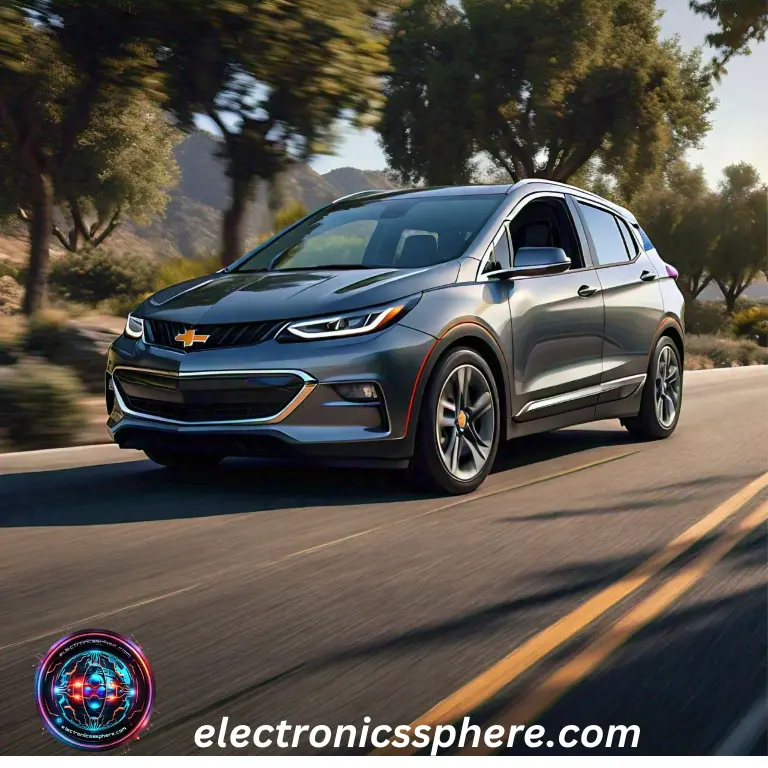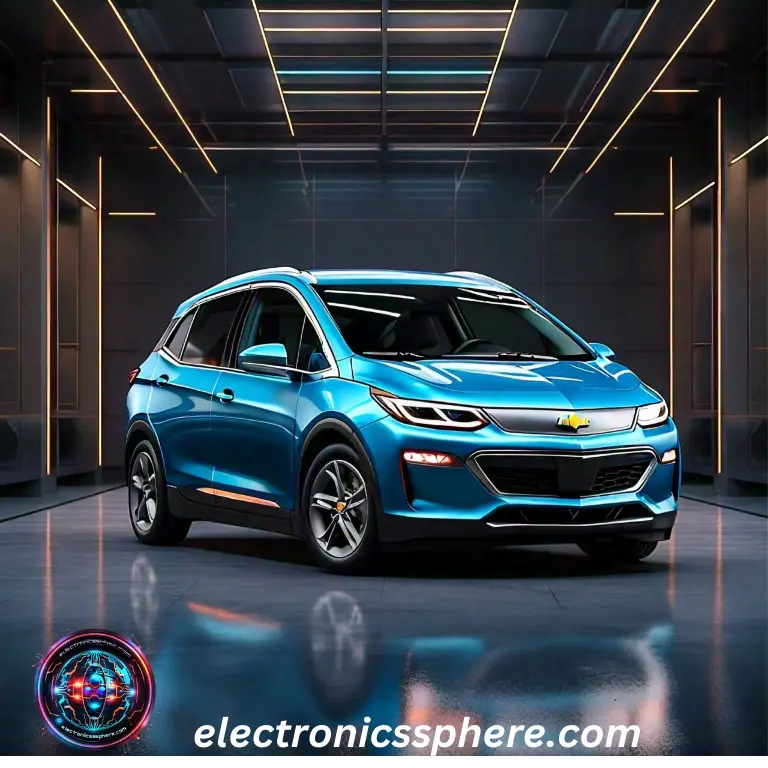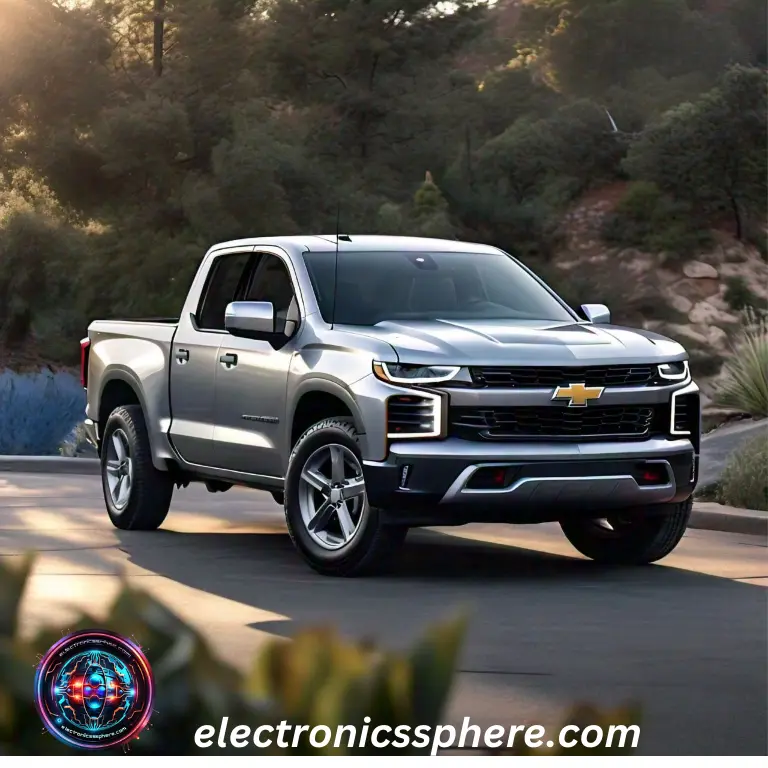Chevy Electric Vehicles Exploring Future Sustainable Driving
Chevrolet, commonly known as Chevy, has been a significant player in the automotive industry for over a century. Chevy has stepped up to the plate with a robust lineup of electric vehicles (EVs) as the world shifts towards more sustainable and eco-friendly transportation options. This article explores Chevy electric vehicles’ evolution, current offerings, technological advancements, and prospects.
The Evolution of Chevy Electric Vehicles
Chevrolet’s journey into the electric vehicle market began with introduction of the Chevy Volt in 2010. The Volt was a plug-in hybrid electric vehicle (PHEV) that combined an electric motor with a gasoline engine, offering an all-electric range of around 35 miles before switching to gasoline. This innovative approach provided a seamless transition for consumers wary of limited electric range, making the Volt a popular choice and paving the way for future electric endeavors.
In 2016, Chevrolet launched the Bolt EV, a fully electric vehicle with a range exceeding 200 miles on a single charge. The Bolt EV marked a significant milestone for Chevy, demonstrating their commitment to producing affordable, long-range electric vehicles. This car was not just a stepping stone but a giant leap towards establishing Chevrolet as a serious contender in the electric vehicle market.
Current Offerings
As of 2024, Chevy’s electric vehicle lineup includes the Bolt EV, the Bolt EUV (Electric Utility Vehicle), and the much-anticipated Silverado EV. Each model caters to different segments of the market, showcasing Chevy’s versatility and dedication to meeting diverse consumer needs.
Chevy Bolt EV
Range and Performance:
The Bolt EV boasts an impressive range of over 259 miles on a full charge. Its electric motor delivers 200 horsepower and 266 lb-ft of torque, providing a zippy and responsive driving experience.
Features
- The Bolt EV features advanced technology.
- Equipped with a 10.2-inch touchscreen infotainment system.
- Includes Apple CarPlay and Android Auto integration.
- Offers a suite of driver-assistance features.
- Automatic emergency braking for enhanced safety.
- Lane-keeping assist to help maintain lane position.
- Built-in Wi-Fi hotspot for connectivity on the go.
- High-resolution rearview camera for improved visibility.
- Energy-efficient LED headlights for better illumination.
Affordability:
One of the Bolt EV’s key selling points is its affordability. A starting price significantly lower than many competitors makes electric driving accessible to a broader audience.

Chevy Bolt EUV
Range and Performance:
The Bolt EUV offers a similar range to the Bolt EV, with an estimated 247 miles on a single charge. It features the same powertrain, ensuring robust performance and efficiency.
Enhanced Space and Comfort:
The EUV version provides more interior space and a slightly higher ride height, appealing to those who prefer a crossover style. It also introduces Super Cruise, Chevy’s semi-autonomous driving technology, allowing for hands-free driving on compatible highways.
Tech and Convenience:
The Bolt EUV includes many tech features, such as wireless device charging, a panoramic sunroof, and a customizable driver display, enhancing both comfort and convenience.

Chevy Silverado EV
Range and Performance:
As Chevrolet enters the electric pickup market, the Silverado EV promises a range of over 400 miles per charge. It aims to combine the rugged capability of a traditional Silverado with the benefits of electric power.
Towing and Hauling:
With a towing capacity expected to exceed 10,000 pounds and substantial payload capabilities, the Silverado EV is designed to meet the demands of heavy-duty users.
Innovation and Design:
The Silverado EV is expected to feature a sleek, aerodynamic design, advanced infotainment options, and a versatile bed with multi-functionality.

Role in Manufacturing Electric Vehicles
Chevy’s role in the manufacturing of electric vehicles is underpinned by a commitment to innovation, sustainability, and consumer satisfaction. Several key aspects highlight their contributions:
- Battery Technology: Chevy has invested heavily in battery technology to enhance the range, efficiency, and safety of their EVs. The use of lithium-ion batteries with advanced cooling systems ensures optimal performance and longevity. Additionally, Chevy is exploring solid-state batteries, which promise even greater energy density and faster charging times.
- Sustainability Initiatives: In line with global sustainability goals, Chevy has implemented eco-friendly practices throughout their manufacturing process. This includes the use of recycled materials, energy-efficient production techniques, and partnerships with renewable energy providers to power their manufacturing facilities.
- Consumer-Centric Design: Chevy places a strong emphasis on understanding and meeting consumer needs. This is evident in the variety of models available, each tailored to different lifestyles and preferences. Whether it’s the compact and affordable Bolt EV or the robust and capable Silverado EV, Chevy ensures that there is an electric vehicle for every type of driver.
Increasing Efficiency of Vehicles
Electric vehicles inherently offer higher efficiency compared to their gasoline counterparts. Chevy has implemented several strategies to maximize this efficiency, making their EVs some of the most competitive on the market.
- Aerodynamics: The design of Chevy electric vehicles prioritizes aerodynamics to reduce drag and improve energy efficiency. Sleek lines, smooth underbodies, and innovative features like active grille shutters help to optimize airflow and extend range.
- Regenerative Braking: Chevy EVs utilize regenerative braking systems to capture and reuse energy that would otherwise be lost during braking. This technology not only enhances efficiency but also extends the lifespan of brake components.
- Energy Management Systems: Advanced energy management systems in Chevy EVs ensure optimal distribution and use of electrical power. This includes intelligent battery management, climate control systems designed to minimize energy use, and driving modes that allow users to prioritize efficiency or performance based on their needs.
- Lightweight Materials: The use of lightweight materials in vehicle construction plays a crucial role in improving efficiency. Aluminum, high-strength steel, and composite materials help reduce the overall weight of the vehicle, thereby increasing range and performance.
The Future of Chevy Electric Vehicles
The future of Chevy electric vehicles looks promising as the company continues to innovate and expand its lineup. Several exciting developments are on the horizon:
Ultium Battery Platform: Chevy’s parent company, General Motors, has developed the Ultium battery platform, which promises to revolutionize the EV market. This flexible platform can be scaled to different sizes and power outputs, supporting a wide range of vehicles from compact cars to heavy-duty trucks. The Ultium batteries offer increased energy density, faster charging times, and lower costs, making electric vehicles more accessible and appealing to consumers.
Autonomous Driving Technology: Chevy is at the forefront of developing autonomous driving technology. The integration of Super Cruise, a semi-autonomous driving system, in vehicles like the Bolt EUV, showcases Chevy’s commitment to enhancing safety and convenience. Future models are expected to feature even more advanced autonomous capabilities, making driving safer and more enjoyable.
Expanding Model Lineup: Chevy plans to expand its electric vehicle lineup significantly in the coming years. This includes the introduction of new models in various segments, such as SUVs, crossovers, and performance vehicles. By offering a diverse range of EVs, Chevy aims to cater to a broader audience and accelerate the adoption of electric mobility.
Global Sustainability Goals: Chevy is committed to contributing to global sustainability goals by reducing its carbon footprint and promoting the use of renewable energy. This includes transitioning to electric vehicles across its entire product lineup and supporting initiatives to build a robust EV charging infrastructure. By doing so, Chevy aims to lead the automotive industry towards a greener and more sustainable future.
Conclusion
Chevy electric vehicles represent a significant step forward in the quest for sustainable and efficient transportation. From the pioneering Chevy Volt to the innovative Bolt EV and the powerful Silverado EV, Chevy has demonstrated a steadfast commitment to electrification. By focusing on advanced battery technology, consumer-centric design, and continuous innovation, Chevy is poised to play a crucial role in the future of electric mobility. As the automotive industry continues to evolve, Chevy’s dedication to electric vehicles will undoubtedly drive progress and inspire other manufacturers to follow suit.





